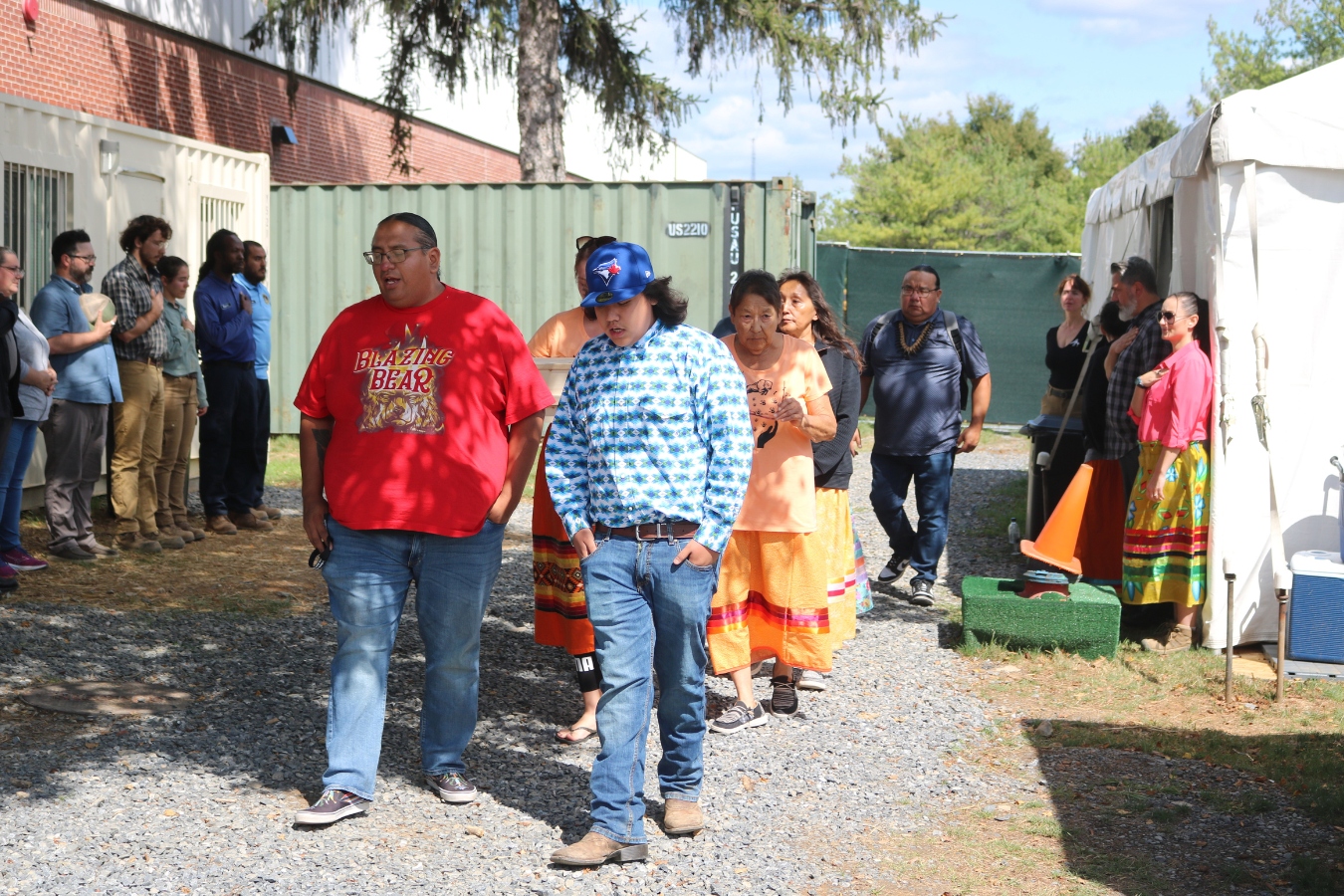
- Details
- By Jenna Kunze
The Department of Justice has requested a 10-day extension to respond to a lawsuit that will likely determine whether or not the United States Office of Army Cemeteries is required to follow a process designed by federal law in returning the human remains of nearly 200 Native children.
The Native American Rights Fund (NARF) filed the lawsuit against the Army on January 17, 2024, on behalf of the Winnebago Tribe of Nebraska. The tribe is seeking the return of the remains of two of its children who died and were buried at the federal government’s flagship Indian boarding school more than 120 years ago.
The Army has 90 days—or until April 23—to respond to the suit. However, according to an attorney for the Winnebago Tribe, the DOJ requested the extension on Monday, April 15.
In the lawsuit, the tribe alleges that the Army has failed to follow the federal law called the Native American Graves Protection and Repatriation Act (NAGPRA), instead deferring its own process in returning some of the more than 200 Native American and Alaska Native childrens’ remains in its care. Listed as defendants in the lawsuit are: The U.S. Army, the Office of Army Cemeteries, and three individual employees who oversee the Office of Army Secretaries and the cemetery where the children are buried.
At the center of the lawsuit is a disagreement between the tribe and the Army as to whether or not NAGPRA applies to the cemetery at the site of the former Carlisle Indian Industrial School. The Carlisle Main Post Cemetery, which is now operated by the Army, is where Winnebago citizens Edward Hensley and Samuel Gilbert—along with roughly 180 other Native American children from tribal nations across the United States—are buried.
Congress passed NAGPRA in 1990 to provide a process for federal agencies and institutions that receive federal funds to repatriate or transfer certain Native American cultural items, including human remains, back to their respective tribal nations. The rules set a clear 90-day timeline for repatriation and provide guidelines for institutions to initiate tribal consultation. It also allows tribes to decide themselves who will claim children who are culturally affiliated to them.
Instead of following NAGPRA, the Army contends it can follow its own policy, which sets different guidelines, defines who can request the return of a child buried at Carlisle (their “closest living relative”), and defines the timeframe.
In the spirit of cooperation, the Tribe agreed to an extension as requested by the Army, according to Danelle Smith, an attorney representing the Winnebago Tribe in the suit. “But we look forward to moving this case forward as expeditiously as possible so Samuel and Edward can finally come home,” Smith said.
The Office of Army Cemeteries told Native News Online that, while the lawsuit is handled by the Department of Justice, the OAC is committed to working with all tribes and families for the return of the remaining Native children buried at Carlisle.
“The Army has, at Army expense, previously returned to their families, 32 children from the Carlisle Barracks Post Cemetery and has the necessary documents to return an additional 29 over FY24 and FY25,” OAC spokesperson Olivia Van Den Heuvel told Native News Online.
Editor's Note: This story has been updated with a response from the Office of Army Cemeteries.
More Stories Like This
Navajo Nation Declares State Of Emergency As Winter Storm Threatens RegionThe Prediction Market Boom is Posing an Existential Threat to American Indian Gaming
NARF Condemns ICE Actions, Says Native Americans Unlawfully Detained
United Indian Nations of Oklahoma Urges Tribal Citizens to Carry ID Amid ICE Enforcement Actions
Oglala Sioux Tribe Rejects ICE Conditions for Information on Detained Members
Help us defend tribal sovereignty.
At Native News Online, our mission is rooted in telling the stories that strengthen sovereignty and uplift Indigenous voices — not just at year’s end, but every single day.
Because of your generosity last year, we were able to keep our reporters on the ground in tribal communities, at national gatherings and in the halls of Congress — covering the issues that matter most to Indian Country: sovereignty, culture, education, health and economic opportunity.
That support sustained us through a tough year in 2025. Now, as we look to the year ahead, we need your help right now to ensure warrior journalism remains strong — reporting that defends tribal sovereignty, amplifies Native truth, and holds power accountable.
 The stakes couldn't be higher. Your support keeps Native voices heard, Native stories told and Native sovereignty defended.
The stakes couldn't be higher. Your support keeps Native voices heard, Native stories told and Native sovereignty defended.
Stand with Warrior Journalism today.
Levi Rickert (Potawatomi), Editor & Publisher


